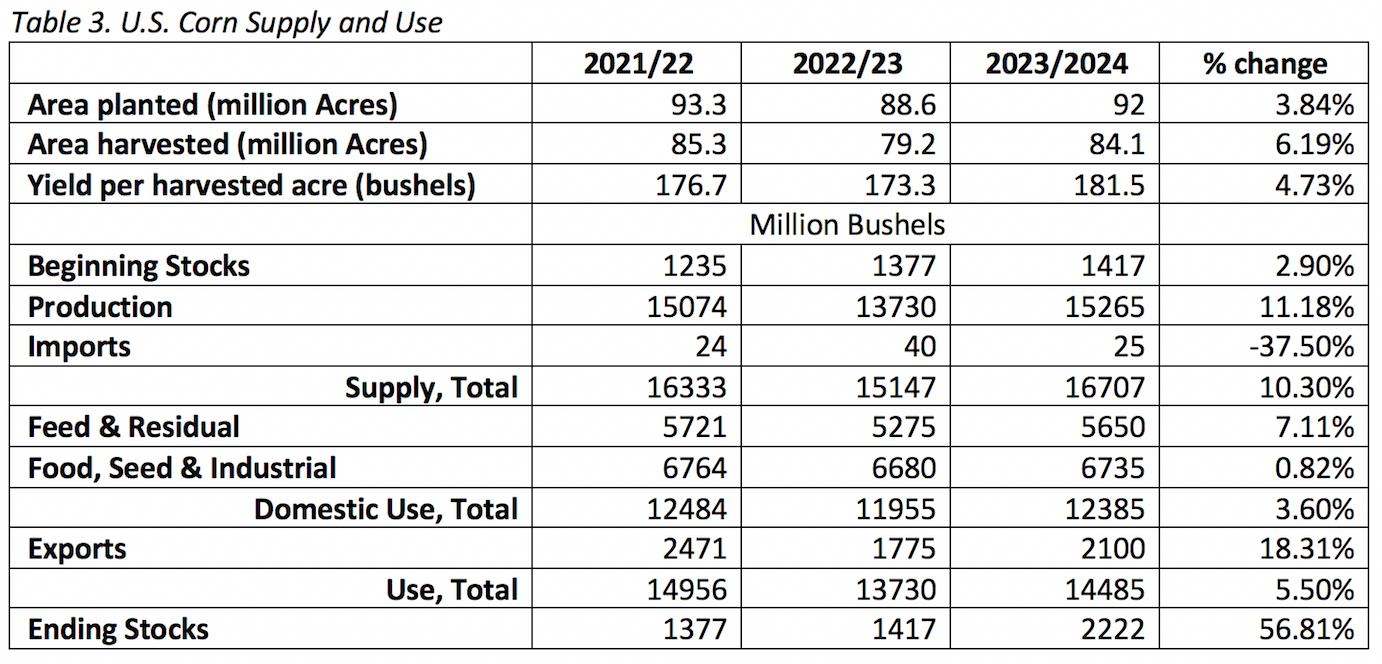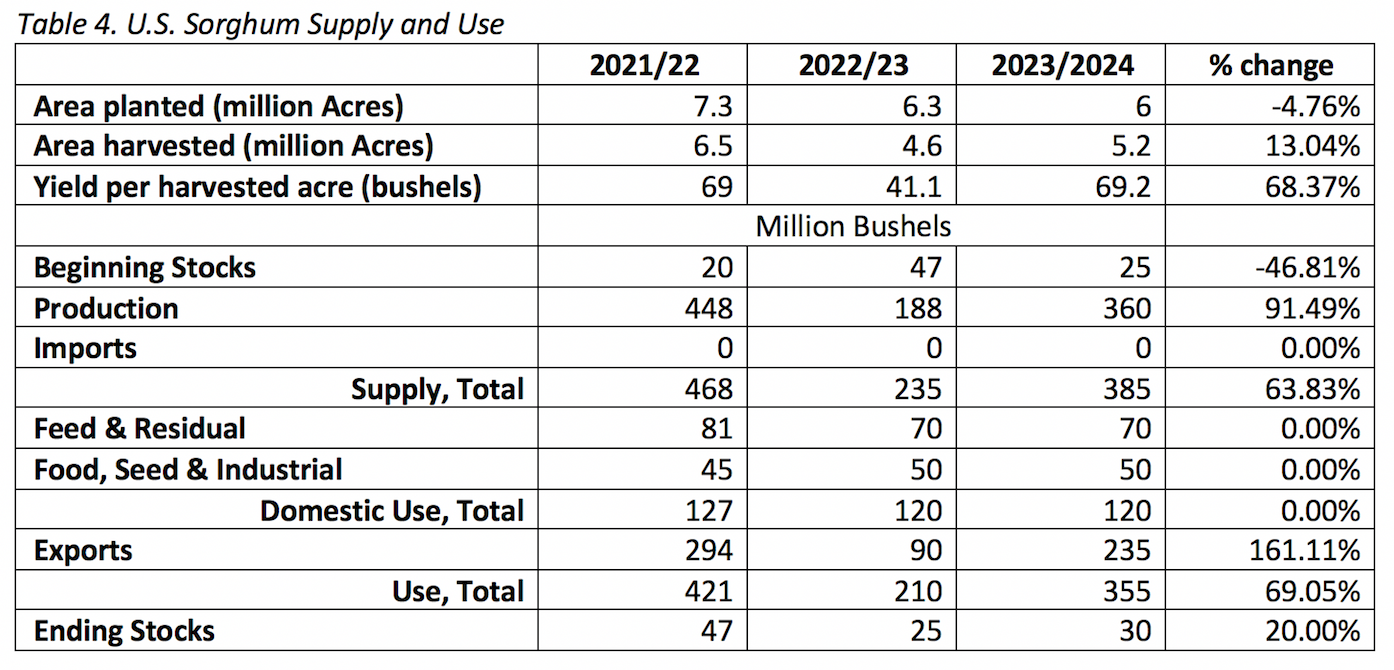The costs associated with owning and operating machinery represent a large proportion of the total production costs for many farm operations. In this post, we will look at the costs associated with machinery ownership as well as the options available to farm managers for obtaining access to machinery services.
Board Update 5/1/2023

Tulia, Amarillo, Dalhart Average – Cattle Prices by Category 4/27/2023

Dates & Deadlines
5/4/ 2023 – RWFM Stewardship Webinar Series: Wild Pigs in Texas
6/1/2023 – RWFM Stewardship Webinar Series: Algal Blooms and Management
7/6/2023 – Ranchland Friend or Foe?
Machinery Costs
Machinery costs can be split into two categories: fixed costs related to owning machinery and variable costs related to operating machinery.
Fixed costs are incurred regardless of whether the machinery is used at all and remain the same regardless of how much or how little the machinery is used. In other words, these are costs that are incurred simply because you own the machine, which is why they are often referred to as ownership costs, and do not change from year to year. The two largest sources of ownership costs for machinery are depreciation and interest costs. In addition to depreciation and interest, the cost associated with storage, insurance, and taxes should also be considered.
Machinery variable costs are associated with the actual use of machinery during the production of a farm commodity. These costs are often referred to as operating costs and will vary from year to year depending on how often and how intensely you use the machine in question. Operating costs for most machinery include costs related to labor, fuel, lubrication, and repairs.
To aid in the calculation of machinery costs, and with the allocation of these costs to different enterprises, Texas A&M AgriLife extension economists have developed a machinery cost estimator. Managers can use this tool along with information from their operation to estimate the ownership and operating costs associated with the machinery they plan to use in their operations.
Options for Obtaining Machinery Services
Managers have a variety of options for obtaining access to machinery for their operations. The traditional way to access machinery is to purchase what you need. The primary value to this approach is the amount of certainty and control that it offers the manager. If you own a piece of machinery, you can be more certain of its condition and ability to perform, and you have the freedom to choose how often and how intensely you use it. You also have the freedom to replace or sell machinery that you own when you find it necessary or desirable to do so. The primary challenge to owning machinery is often the size of the initial cost required to make the purchase. Operations with a small amount of working capital may not be able to afford the down payment cost or the financing costs required to purchase machinery outright.
For managers that find machinery ownership infeasible or undesirable, there are alternatives in the form of leasing, renting, or custom hire. Leasing equipment normally involves a long-term contract that give you access to and control over the machinery for the period of the lease. As the lessee, you would be responsible for the variable costs associated with operating the machinery and potentially for some of the fixed costs, such as insurance and storage, along with the lease payments made to the owner. The value to a lease over outright ownership is often that the upfront and periodic payments in a lease are normally less than the down payment and financing costs required to purchase the same machine. The tradeoff to leasing over buying is that you give up some of the certainty and freedom that comes with ownership. The owner could choose not to renew the lease once it expires so you cannot be as certain the machinery in question will be available to you outside of the years specified in the lease. In addition, some leases will specify the number of hours the machine can be used, which will limit your ability to use it in your operation.
Some machinery services are not needed every production season. For this reason, managers may find ownership or a long-term lease undesirable. In such cases, you might choose to rent equipment on an as-needed basis or to hire custom services. A rental agreement involves a short-term contract that gives you access to the machinery that you need for a short period of time (normally a few days, weeks, or months). You would still be responsible for the variable costs associated with operating the machinery while you are using it, along with the rental rate that you agree to pay the owner. Hiring custom services involves paying someone else to bring their machinery to your operation to perform a specific task. The rate you will pay for custom services will vary depending on the region where you farm and the service you wish to hire. To help evaluate the cost of these services, Texas A&M AgriLife extension economists periodically conduct a custom rate survey which reports the prices paid for a variety of custom services throughout the state of Texas.
The potential downside to renting and custom hire is matching the timing of your need with the timing of the machine’s availability. As a renter or a customer, you may be competing with other producers for access to the same machinery at the same time of year. For this reason, the machine’s owner may not be able to accommodate the time frame in which you wish to use the machine in your operation.
Choosing an Alternative
There is no single correct way to obtain access to machinery. How you choose to do so will probably depend on the following factors:
- Your current financial situation.
- The value you place on ownership.
- The number of years that you intend to use the machinery and how often you wish to replace the machines you use.
- The frequency at which you will use the machinery.
For example, if your operation’s financial situation allows it and you plan to use a machine regularly for a number of years then you might find purchasing the machine to be the best strategy. On the other hand, if you know you will only use a machine for a few weeks every few years then renting or custom hire might be a better strategy so that you avoid the ownership costs associated with a machine you don’t use often. As you consider these alternatives, keep in mind that the extension economist in your district is available to help you evaluate each option and identify the strategy that will be best for your operation.